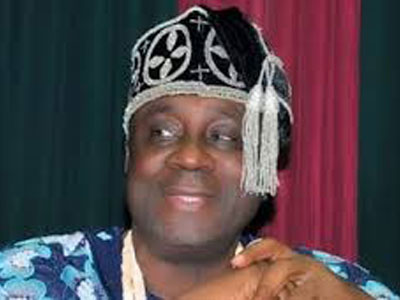
Sadly, that assessment and soul-searching will have to include the unedifying comments by the Oba of Lagos, Rilwan Akiolu, in his palace shortly before the governorship and state assembly elections. That statement, unguarded and offensive, has certainly tainted the aura of his throne and portrayed as a belligerent rabble-rouser a man who ordinarily should be seen promoting traditional and cultural values as well as the unity of the people in his domain.
The unfortunate words, said to some notable Igbo residents who were the Oba’s guests, were considered weighty enough to be a threat to the peaceful co-existence of two of the country’s major ethnic groups, and the unity that was forged at a great price.
It is just as well that the palace has since scrambled some control measures though the damage had been done.
The royal faux pas, which, not surprisingly went viral, raised dust and generated bad blood, especially among the Igbo community in Lagos and across the country, civil society groups and political activists and socio-cultural organisations, showing that even for a traditional ruler, in anger, there should be grace.
Certainly, the gaffe, an unnecessary bombast from a traditional ruler with no legal authority over how people should vote, was avoidable. A monarch is father to all in his domain, the different ethnic backgrounds of residents notwithstanding. Oba Akiolu has no place in politics and if he must express be partisan, a more discreet approach would have been more edifying.
It is also important for every opinion leader to imbibe and exhibit, always, a culture of tolerance for opposing political views as guaranteed by the constitution, in the knowledge that political seasons, like this will ebb like a tide, but the society remains.
The so-called non-indigenes who have over the years contributed immensely to the growth and development of Lagos, especially the economy, had every reason to take umbrage at Oba Akiolu’s manner of delivery of his wish for the “settlers” to respect his political wish and support a candidate of his choice to secure the governorship seat, failing which, according to his reported statement, any violator would end up in the lagoon.
The royal’s preferred candidate and his political camp, sensing their fortunes almost collapsing at being linked with the royal threat, appropriately struggled to distance party activities from palace activities.
Certainly, it was bad enough to drag the revered traditional institution into politics to the level of threatening innocent Nigerians, it was doubly embarrassing for the traditional ruler to openly express so much contempt for his own subjects’ feelings even if there was a gap between Akiolu’s delivery and what the media transmitted, as the palace later claimed. Even if his intended message was different from what went viral and almost disrupted peace, this must never happen again.
A few questions, for example, are germane: Was Oba Akiolu reacting to some political undercurrents that the larger society was not privy to? Was his message lost in transmission or twisted for political gain? Couldn’t he have put the same message across with a plea? Should the electorate have voted out of fear and not convictions about the worth of a candidate? How fair would the process have been if the choice were a product of intimidation? Anyway, such inflammatory comments as shown, are inexcusable and if an elder must express his feelings, couldn’t he have said it in the privacy of his palace outside of media attention?
Now, how would royalty across Nigeria go about restoring credibility to the battered institution? For instance, in Ondo State, another top class monarch has been accused of instigating violence in a constituency for alleged political interest while in Osun State, rampaging youths violently desecrated a monarch’s palace in Aagba and carted away the crown in a post-presidential poll victory celebration over the ruler’s alleged political bias. There are more examples but the message is simple: Traditional rulers must leave politics to politicians; if they are interested, they must vacate the exalted throne. The example of the Awujale of Ijebu, Oba Sikiru Adetona, who privately and publicly preached neutrality by traditional rulers, is worthy of emulation.
Lagos is a cosmopolitan city and all residents, even the dominant Yoruba stock, cherish freedom of choice as one of their most guarded values. Also, the people have no history of fuelling ethnic tension and it is in this context that Oba Akiolu’s comments should be understood as not representative of a people’s desire to alienate any other group.
In the interest of Nigeria, individuals and groups, no matter their status, must learn to live in accord with one another in any part of the country.
Now that the elections are over, it is incumbent on all persons to consider all foul words and wrong deeds during the campaigns as some human errors that must be forgiven and forgotten in the spirit of a new Nigeria emerging from current political developments.






